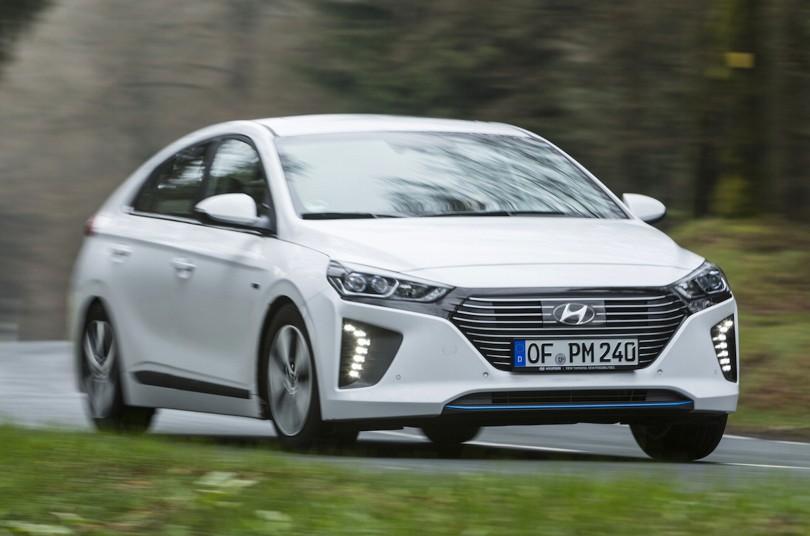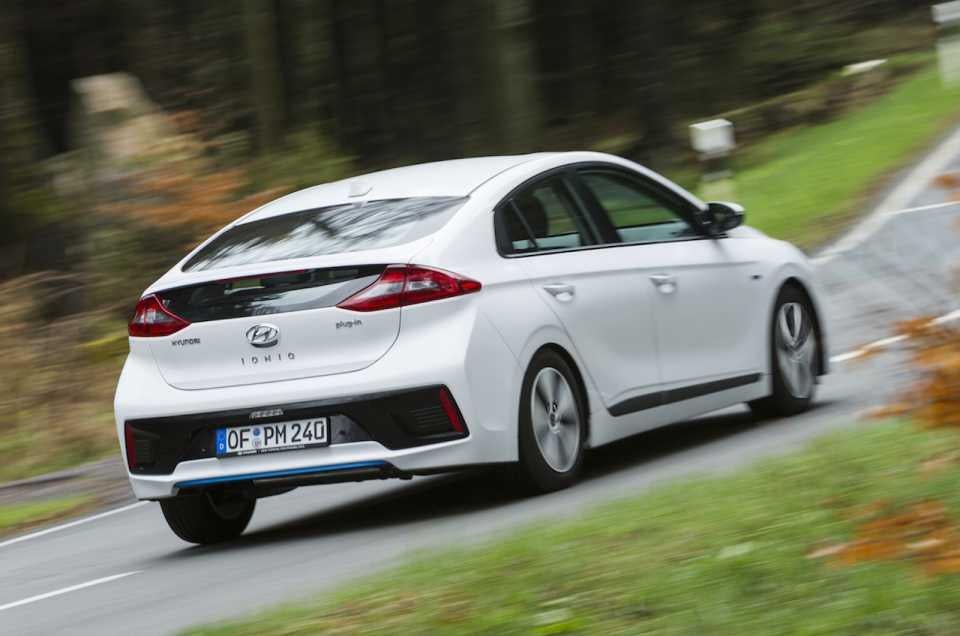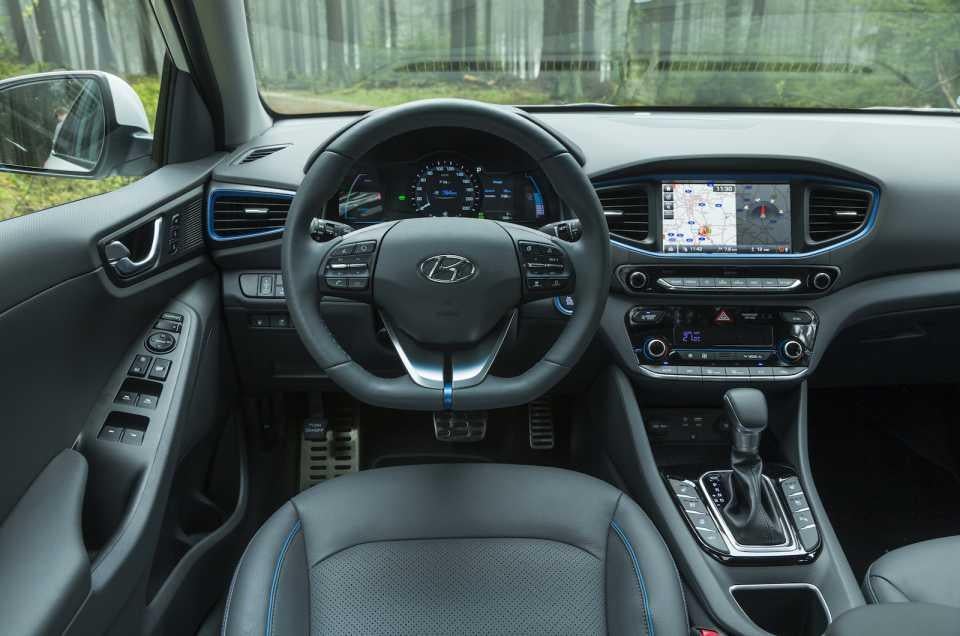Review: Hyundai Ioniq Plug-in
Potentially affordable hybrid family hatch offers 80mpg in the real world

Hyundai’s Ioniq should perhaps be called the Uniq as it is the only environmentally friendly family hatchback that you can get as either a normal hybrid, a plug-in-hybrid, or a full battery-only EV.
Unfortunately for Hyundai, the UK launch of the Plug-in hybrid piece of the jigsaw has been held up by battery shortages. That’s unfortunate because it would have given Hyundai early bragging rights on claimed fuel economy and emissions, rights that were bagged by Toyota’s Prius Plug-in.
Anyway, battery shortage overcome, Hyundai is hoping to have cars in British showrooms this autumn. Is it worth waiting for?
Well, this derivative is basically the same as the regular hybrid apart from its much bigger and more powerful lithium-ion drive battery and the ‘Type II’ electrical charging socket it needs for mains charging. With a 8.9kWh capacity, the battery take just over two hours to be replenished from a 16-amp wallbox.

The petrol side of the equation is supplied by a 104bhp 1.6-litre engine. Drive from this and the single 60bhp electric motor is taken to the front wheels by a six-speed twin-clutch automatic gearbox.
The Ioniq Plug-in isn’t intended to take on sportier ‘PHEV’ hatchbacks. Its raison d’etre is to make plug-in hybrid technology more affordable to a wider audience. So, it’s not an exciting drive. It’s more about worthiness and functionality.
You’ve got three modes: ‘EV’, ‘HEV Hybrid’ and ‘Sport’. Our experience is that you should be able to get about 30 miles of electric-only general motoring out of it – a bit less than Hyundai’s 39-mile claim, but very much in the same ballpark as the Toyota plug-in. Over a mixed 100-mile test route we got a very decent 85.6mpg.

The electric motor gives sufficient urban urge to around 50mph, and the Ioniq will motorway-cruised on electricity only, but getting it up to those speeds requires the petrol engine to join in. It’s a shame that’s it’s not easier to exclude the petrol engine by way of some sort of haptic accelerator pedal or similar. Even when you’re in ‘EV’ mode the Ioniq will often trip itself into unwanted ‘Hybrid’ mode.
Go for ‘Sport’ mode to encourage the Ioniq into having a go at entertaining you and you’ll detect an unwelcome weight coming into the steering. The gearbox gets a little confused by demands for performance, the already lumpen ride deteriorates during enthusiastic cornering and the less than generous grip starts to run out.
Leave it in 'HEV Hybrid' mode once the battery has run down though and the Ioniq seems more at ease. The class-typical artificiality of both steering and braking make smooth driving harder than strictly necessary, but the allure of minimised fuel stops compensates for a lot.

Inside, there’s very little difference between the Plug-in and the other two Ioniqs. It’s a pretty big and roomy hatchback with good width and legroom in the back but slightly tight headroom. You do lose a bit of boot space because of the bigger battery, but the shape of what’s left should still accommodate pushchairs.
In general, the infotainment system isn't hugely intuitive or visually appealing but the Plug-in does get extra functions such as a charging station search facility, along with a new ‘ECO-DAS’ driving assistant which, for any route programmed into the nav system, is meant to factor in hills, upcoming junctions and motorway exit coasting in order to optimise the car’s battery state. If you drive from the perspective of maximising fuel efficiency, as most Ioniq drivers probably do, chances are you won’t notice much benefit from this.
So – worth buying then? Well, that will depend on how much it costs. We don’t have that information yet, but it seems reasonable to assume that Kia will undercut the Prius Plug-in by as much as £2000 if the wider Ioniq range is any guide. If that happens, you can foresee plenty of buyers for a family-sized ‘PHEV’ hatchback that can do 80mpg in the real world and cost in the region of £26,000 after the government’s plug-in car grant. For many, these factors will be more than enough to overcome the car’s one-dimensional driving dynamics.
Hyundai Ioniq Plug-in
Engine size 1.6 Petrol with hybrid assist
Price £26,000 (est)
Power 139bhp
Torque 195lb ft 0-62mph 10.6sec
Top speed 111mph
Gov't economy (official combined) 257mpg
CO2/BIK band 26g/km/9%
Insurance group tbc
Airbags 7
Doors 5
Seats 5
On sale Autumn 2017
Tony Middlehurst is a writer for WhatCar
Join our commenting forum
Join thought-provoking conversations, follow other Independent readers and see their replies
Comments
Bookmark popover
Removed from bookmarks